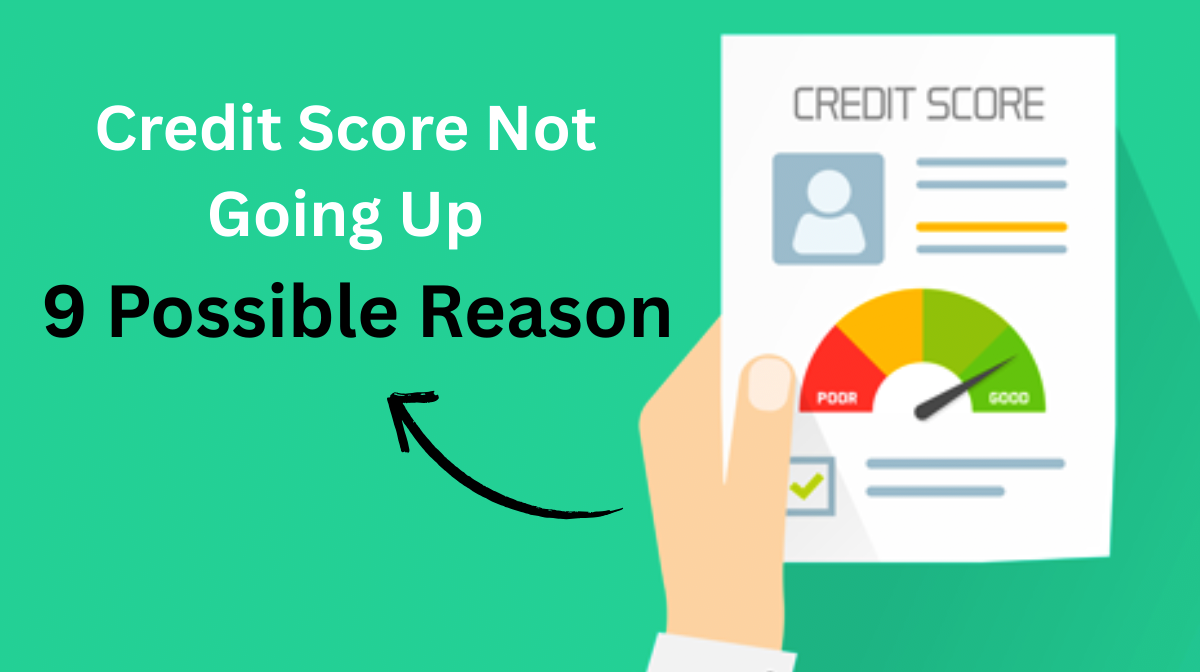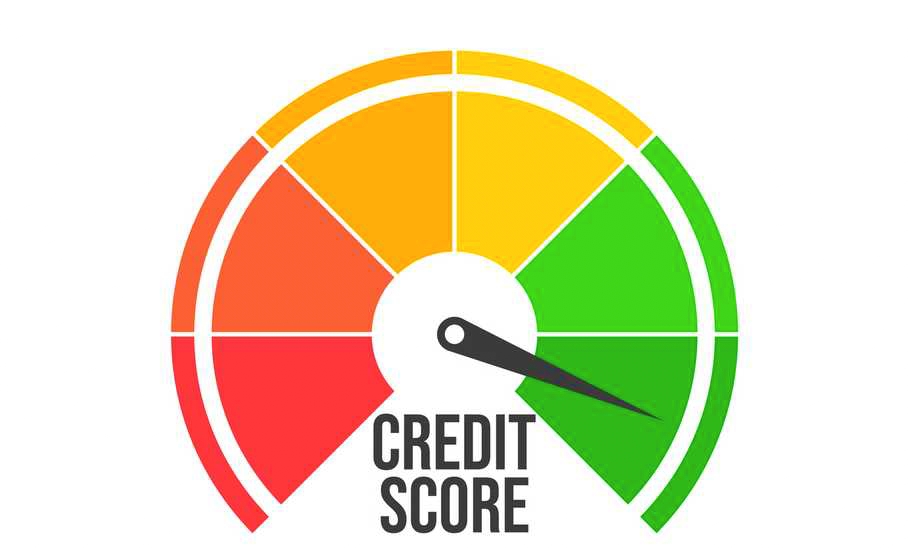Your cart is currently empty!

Why Your Credit Score not going up-9 Possible Reasons
Frustrated that your credit score not going up? Discover 9 common reasons why it’s stuck and how you can finally start seeing progress.
Sound familiar?
If you’ve been checking your credit score regularly and feel stuck at the same number (or worse, watching it drop), you’re not alone. Improving your credit score can sometimes feel like a mystery — but it doesn’t have to be.
Let’s break down the real reasons your credit score may not be improving, and what you can start doing differently today.

Table of Contents
1-You’re Making Payments, But Carrying High Balances
Even if you’re paying on time, high credit card balances can hurt your credit score.
Your credit utilization ratio — the amount of credit you’re using compared to your total limit — plays a big role in your score. This percentage should ideally remain below 30%. Lower is even better, though.
Why this matters for your credit score
Credit scoring models (like FICO or VantageScore) look at how much credit you’re using. If your cards are always near their limit, lenders see you as a risk — even if you’re paying the minimum balance.
What to do
Pay down your balances as much as you can, even before the statement closing date. Even better, try to make your monthly payment in full. This alone can cause your credit score to rise within weeks.
2- You Closed an Old Credit Card
It might have felt like the responsible thing to do, especially if you weren’t using the card. However, your credit score may suffer if you close a credit card.
How closing accounts affects your credit score
When you close an account, you shorten your credit history and reduce your overall available credit. Your credit score is influenced by both of these important elements.
What to do
Keep old accounts open, especially if they have no annual fee. To keep them engaged, simply make a small purchase every few months. That way, your history stays long, and your utilization stays low.
3- You’re Only Paying the Minimum Due
Paying on time is good — but only paying the minimum keeps your balances high and interest accumulating.
Why minimum payments slow your progress
Your debt doesn’t shrink fast enough, which affects your utilization. Plus, interest keeps piling up, making it harder to get ahead.
What to do
If possible, pay more than the minimum — even just a little extra makes a difference. If you’re juggling multiple cards, consider the avalanche or snowball method to pay down debt more strategically.
To build your credit score fast, you can also check our guide on “How to Quickly Raise Your Credit Score in 30 Days?“
4- There Are Errors on Your Credit Report
Yes, credit reports can have mistakes — and they’re more common than you’d think.
How credit report errors impact your score
One wrong entry — like a missed payment that wasn’t actually missed, or a debt you’ve already paid — can drag down your score. And until it’s fixed, it’ll keep doing damage.
What to do
Check your credit report from all three major bureaus: Equifax, Experian, and TransUnion. You can get a free report from each every year at AnnualCreditReport.com. Dispute any errors you find. Fixing just one mistake can boost your score.
5- You’re Applying for Too Much Credit Too Often
Every time you apply for a loan or credit card, a hard inquiry is sent to your credit report. While one or two per year is fine, too many can be a red flag to lenders.
Why frequent credit checks matter
Hard inquiries can temporarily lower your score. If you apply for several cards in a short time, it might look like you’re desperate for credit.
What to do
Apply only when necessary. If you’re rate-shopping (like for a mortgage or auto loan), do it within a short time frame — most scoring models count those inquiries as one.
6- Your Credit Mix Is Limited
On-time bill payment isn’t the only factor that affects your credit score. Your kinds of credit are also taken into account.
Why a varied credit mix helps
Lenders want to see that you can manage different kinds of debt — like credit cards, student loans, auto loans, or mortgages. If you only have one type, your score might plateau.
What to do
You don’t need to go out and take on more debt just to improve your score. But if you’re thinking of getting a small installment loan or secured card, it could help build a stronger credit profile.
7- Your Score Needs Time to Reflect Your Habits
Sometimes, the reason your credit score isn’t improving is simply time.
Why your credit score depends on time
Credit scores reward consistency. Even if you’ve been doing everything right for a few months, it can take six months to a year to see a significant jump — especially if you’re rebuilding from past issues.
What to do
Stay the course. Keep making smart financial decisions. Your efforts are stacking up, even if the score hasn’t caught up yet. Patience really does pay off in the credit world.
To build your credit score fast, you can also check our guide on “How Can I Get My Credit Ready for a Mortgage Application?“
8- You Have a Thin Credit File
If you’re new to credit, or haven’t used it much, your file might not have enough information to generate a strong score.
Why a limited history holds you back
Scoring models need data to predict risk. With little or no credit history, it’s hard for them to do that — so you might end up with a low or “unscored” profile.
What to do
Consider tools like Experian Boost, which can add things like your phone or utility payments to your credit report. You could also open a secured credit card, become an authorized user on a trusted person’s account, or apply for a credit-builder loan.
9- You Missed a Payment Recently
Even one late payment can hit hard. A 30-day late payment can stay on your report for up to seven years.
Why payment history matters most
Your payment history is the main factor that determines your credit score. If you miss even one bill, your score can drop dramatically — and slowly recover.
What to do
If the missed payment was an error, contact the lender and ask for a goodwill adjustment. Some lenders may remove the late mark if you have a solid history with them.
Going forward, set up automatic payments or reminders to avoid this in the future.
Conclusion: Why Your Credit Score not going up
Improving your credit score is more of a marathon than a sprint. It’s about habits, consistency, and a little strategy.Don’t give up if your credit score isn’t rising yet; it doesn’t indicate that you’re failing. It may simply indicate that you need to modify your strategy.
Take a look at your current behaviors. Are you carrying high balances? Are you paying only the minimum? Have you looked for mistakes in your credit report?
You can deal with the things that are keeping you from progressing.
And remember, your credit score is just one piece of your financial puzzle. With smart planning and patience, it will improve — one step at a time.
Frequently asked questions on Why Your Credit Score not going up?
1-Why did my credit score go up?
Your credit score likely increased due to timely payments, reduced credit card balances, or an improved credit utilization ratio.
2-Why is my credit score so high?
A high score usually means you have a long credit history, low credit usage, on-time payments, and few or no negative marks.
3-Why isn’t my credit score increasing?
Your score may be stuck due to high debt, recent late payments, or not enough positive credit activity being reported.
Leave a Reply